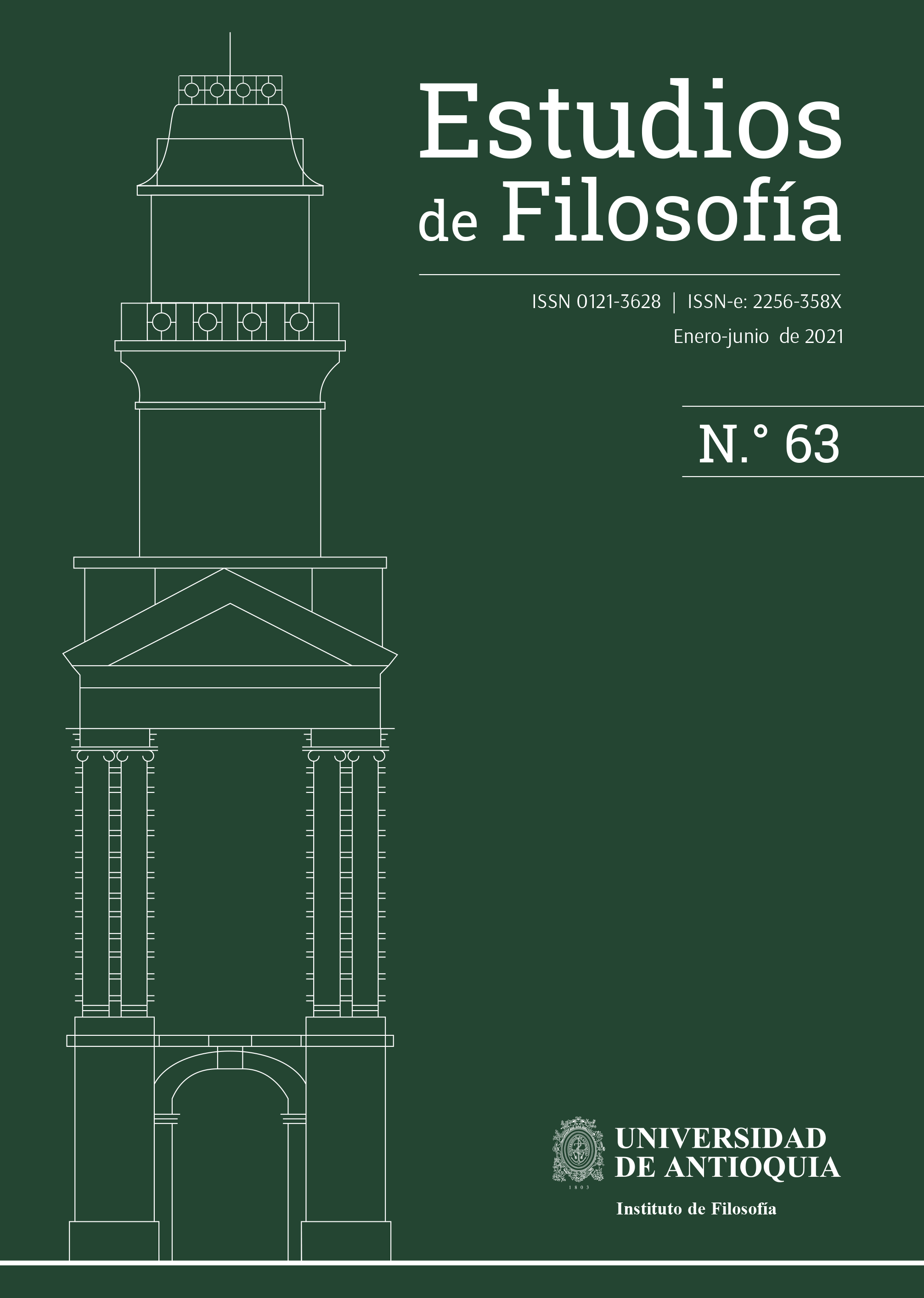Cortés, F. (2020). On the art of peace: philosophical reflections about transitional justice. Siglo del Hombre
DOI:
https://doi.org/10.17533/udea.ef.n63a10Keywords:
Colombia, Transitional justice, Peace, Peace processAbstract
I have read with passion, with citizen passion, and with philosophical passion, Francisco Cortés' reflection on the processes and problems of transitional justice in Colombia. passion
citizen because, although it is not my country, I am close to it and because the problems it addresses are already universal. The Colombian peace process is one of those turning points in history in which the entire cosmopolitan conception is also concerned. But also, that citizen passion has an echo in my country, Spain. Spain has been a master at avoiding, stumbling, and once again facing its unfinished historical memory. In Francisco Cortés's analysis, these twists and turns of memory are present in multiple ways and how Colombian society is dealing with them seem fascinatingly exemplary to me, no matter how many difficulties and failures they may have had.
Downloads
References
Cortés, F. (2020). Del arte de la paz: reflexiones filosóficas sobre justicia transicional. Siglo del Hombre.
Douglas, L. (2001). The Memory of Judgement. Making Law and History in the Trials of the Holocaust; New Haven, Yale University Press.
Hampton, J. (1992). An Expressive Theory of Retribution. In Cragg, W. (Ed.), Retributivism and Its Critics (pp. 1-25). Franz Steiner Verlag.
Published
How to Cite
License
Copyright (c) 2021 Carlos Thiebaut

This work is licensed under a Creative Commons Attribution-NonCommercial-ShareAlike 4.0 International License.
Authors who publish with this journal agree to the following terms:
1. The Author retains copyright in the Work, where the term "Work" shall include all digital objects that may result in subsequent electronic publication or distribution.
2. Upon acceptance of the Work, the author shall grant to the Publisher the right of first publication of the Work.
3. The Author shall grant to the Publisher a nonexclusive perpetual right and license to publish, archive, and make accessible the Work in whole or in part in all forms of media now or hereafter known under a Creative Commons Attribution-NoCommercia-ShareAlike (CC BY-NC-SA 4.0), or its equivalent, which, for the avoidance of doubt, allows others to copy, distribute, and transmit the Work under the following conditions: (a) Attribution: Other users must attribute the Work in the manner specified by the author as indicated on the journal Web site;(b) Noncommercial: Other users (including Publisher) may not use this Work for commercial purposes;
4. The Author is able to enter into separate, additional contractual arrangements for the nonexclusive distribution of the journal's published version of the Work (e.g., post it to an institutional repository or publish it in a book), as long as there is provided in the document an acknowledgement of its initial publication in this journal;
5. Authors are permitted, and Estudios de Filosofía promotes, to post online the preprint manuscript of the Work in institutional repositories or on their Websites prior to and during the submission process, as it can lead to productive exchanges, as well as earlier and greater citation of published work (see The Effect of Open Access). Any such posting made before acceptance and publication of the Work is expected be updated upon publication to include a reference to the Estudios de Filosofía's assigned URL to the Article and its final published version in Estudios de Filosofía.















